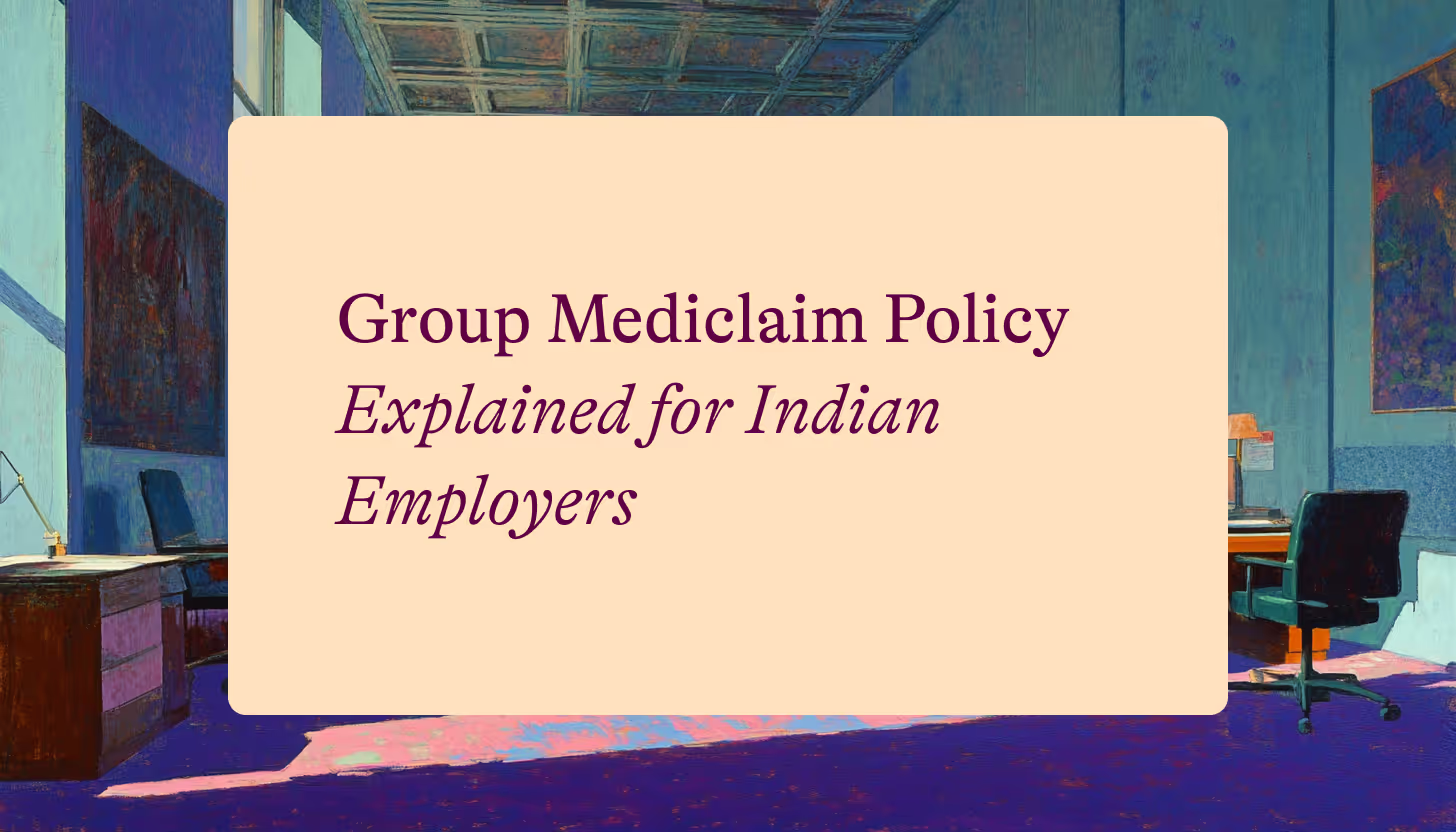Here’s a fact: India has the world’s largest youth population. And here’s another nugget: small businesses contribute 30% to the Indian GDP. Now put two and two together, and this is what you get. An estimated 12 million youth join the workforce each year. Small businesses are hiring gen-z’s and millennials in a frenzy. So, the time has come for companies to skip standard benefits and offer something unique. Something of value.
Of all the things COVID-19 helped us realise, one thing stands clear. Our health and wellness come above everything. Following this lead, many organisations have begun re-evaluating their policies. They are striving to be employee-first. The result? Employees feel more enthusiastic, engaged and empowered.
This helps attract and retain the new age workforce – who look at the “why” behind decision-making, building things and creating impact. Small businesses have been able to achieve success by offering group health insurance. No doubt that offering insurance and health benefits come at a cost. But the benefits outweigh the price, and it is a win-win situation for employers and employees.
Here's why you should consider health insurance plans for small businesses:
Advantages of group health insurance for small businesses
Employee-first work culture
Offering group health insurance is a strong signal to your employees. It means you care about their well-being. It means putting their health on par (if not above) their productivity. Many organisations are putting effort into becoming radically human. Gone are the days when employee health insurance was a nice-to-have benefit.
Today, a group health insurance policy empowers employees. They feel safe navigating finances in case of emergency. This further helps employees focus on their jobs better.
Retain top talent
Think about it. Employees have a myriad of options today. A quick search on Glassdoor offers a bird's eye view of your organisation's work culture. And naturally, attracting top talent is a challenging game. Retention is an even bigger issue if your work culture is not up to your employees’ expectations.
Comprehensive health insurance plans for small businesses goes a long way in walking the talk. Your employees are committed when you offer inclusive health benefits that put their well-being at the forefront. Not to mention, having a great work culture catches everyone’s attention. Take Meesho, for example - whose employee policies are a cut above the rest.
https://twitter.com/getplumhq/status/1560614588772945920?s=46&t=mlViCfTBl2OwkqOW7cAywg
Meesho's group health insurance policy
Cost-efficient
Would you rather reimburse your employees’ medical bills as they come? Or, would you get a group health cover and let the insurer settle payments with the hospital? We bet you chose the latter. A group medical cover is cost-efficient as the premiums are lower. It saves admin time and effort to manage employee information, settle claims, and more.
Being budget-friendly, modern group health insurance allows you to customise your policy. This widens the scope of the benefits employees receive. It also helps them be proactive about their health.
{{group-insurance-quote="/web-library/components"}}
Checklist for small businesses opting for group health cover
Picking a group health cover can be daunting. Especially if this is the first time you’re considering getting one. In that spirit, we have curated a four-point checklist you must consider when picking your group health cover.
Family coverage
There are three key covers that you can choose from.
- E - employees only.
- ESC - employees, spouse and children.
- ESCP - employees, spouse, children and parents/in-laws.
The more people you choose to cover, the higher your premiums are. The best way to choose your coverage is to understand your team’s dynamics. A young team is less likely to have children and dependent parents. But, a team with middle-aged folks probably have children and retired parents.
Claims experience and settlement ratio
A great group health cover offers higher feasibility. Your employees should never encounter a bad claims experience. It, otherwise, defeats the purpose of having a health cover in the first place. Verify the claims experience, processes and support. This acts as a hygiene check for your insurance policy.
Settlement ratios are indicative of an insurer’s ability to clear claims. A higher settlement ratio is always preferable!
Add-ons
Your employees are the final recipients of your group health insurance. Choosing a one-size-fits-all approach has more downsides than positives. Add-ons like maternity benefits, LGBTQ+ and live-in partner covers make your policy inclusive.
{{group-insurance-quote="/web-library/components"}}
The final word
It is never too late to show your employees you care. It doesn't matter if you're picking a group health cover for the first time or renewing your old policy. Group health insurance policies have implications for all. By offering a comprehensive benefit, you’re building a culture of care.
This makes it easier for organisations to help employees look after themselves. After all, people drive a business’s growth and success. And hence, it makes sense to look after people who take care of your business.
.avif)










.avif)














